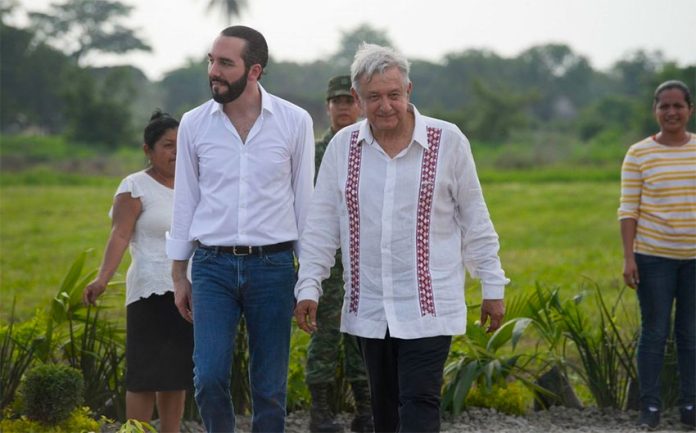As part of efforts to stem the flow of migrants through Mexico, the federal government spent almost 900 million pesos in El Salvador and Honduras last year to provide employment to more than 11,000 people via two social programs.
The Mexican International Cooperation Agency for Development (Amexcid) used 885.66 million pesos (US $44 million) from a government trust fund known as Fondo México to pay 11,184 scholarships to Hondurans and Salvadorans enrolled in the “Youth Building the Future” apprenticeship scheme and the the “Sowing Life” reforestation program.
Forbes México, which obtained Amexcid documents, reported that 6,538 young Central Americans received US $180 monthly payments via the apprenticeship program, which provides work experience and training through registered employers. About 4,000 of that number are in El Salvador and the remainder are in Honduras.
People from those two countries, especially Honduras, have traveled through Mexico in large numbers in recent years as part of migrant caravans whose final intended destination was the United States.
Amexcid paid US $250 monthly payments to 4,646 participants in the Sembrando Vida program, through which fruit and timber-yielding trees are planted. There were 4,079 beneficiaries of the program in El Salvador last year and 567 in Honduras.
The apprenticeship and reforestation schemes, flagship social programs of the federal government, have provided jobs for more than a million people in Mexico. Both have faced accusations of corruption.
The allocation of money for the operation of the schemes in El Salvador and Honduras was approved in September 2019 by a technical committee of Fondo México, which is managed by the Foreign Affairs Ministry.
Earlier in 2019, President López Obrador pledged to give US $90 million annually to El Salvador, Honduras and Guatemala to pay people enrolled in the two programs. He signed agreements with Salvadoran President Nayib Bukele and Honduran President Juan Orlando Hernández in June and July of 2019, respectively.
López Obrador has said that migration should be an option not a necessity, and that investment in development and social programs will allow Central Americans, and Mexicans, to stay at home “among their people and culture” instead of seeking work opportunities in the United States.
The federal government vowed to treat migrants traveling through Mexico with respect before it took office in late 2018 and issued thousands of humanitarian visas in its first months in power.
But under pressure from former United States president Donald Trump to do more to stem the flow of migrants, the government ramped up enforcement against migrants in mid-2019, increasing deportations and deploying the National Guard on both the southern and northern borders.
López Obrador spoke to new U.S. President Joe Biden in December, and during the call they discussed their shared desire to address the root causes of migration in El Salvador, Guatemala, Honduras, and southern Mexico, according to a readout published by the latter’s transition team.
Source: Forbes México (sp)
